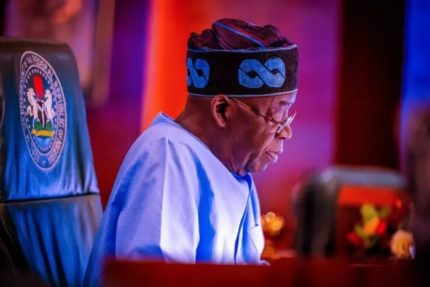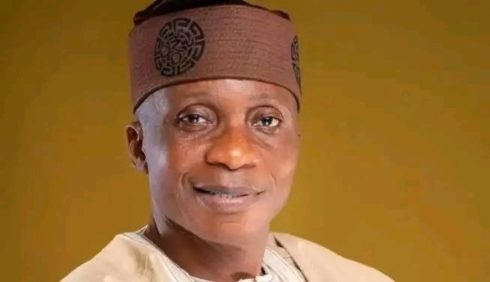The Federal Executive Council (FEC)of Nigeria has revealed a proposed budget of N47.9 trillion for the 2025 fiscal year. This budget, which was approved by the Federal Executive Council, represents the government’s comprehensive financial plan to drive economic growth and stabilize the economy. Atiku Bagudu, the Minister of Budget and Economic Planning, announced the budget proposal during a press briefing following the council’s meeting, chaired by President Bola Tinubu. According to Bagudu, the FEC’s proposal aligns with the Medium-Term Expenditure Framework (MTEF) for 2025-2027, a roadmap that includes economic strategies and fiscal projections for the next three years.
The Federal Executive Council’s proposed budget aims to balance critical spending in key sectors with prudent borrowing to cover the projected budget deficit. Bagudu emphasized that the council set the crude oil benchmark at $75 per barrel and an ambitious oil production target of 2.06 million barrels per day (bpd). Additionally, the exchange rate is projected to be N1,400 per dollar, with an expected GDP growth rate of 6.4% in 2025. These conservative fiscal targets, Bagudu noted, are designed to allow for flexibility in the face of economic uncertainties, with a firm commitment to achieving and potentially exceeding these projections.
Federal Executive Council Outlines Key Economic Assumptions and Fiscal Targets
In crafting the 2025 budget, the Federal Executive Council anchored its projections on specific economic assumptions, focusing heavily on oil revenues and GDP growth. The projected crude oil benchmark of $75 per barrel reflects an optimistic outlook for Nigeria’s primary export, while the 2.06 million barrels per day production target aims to capitalize on global demand for oil. These figures, however, hinge on the Nigerian National Petroleum Corporation Limited’s (NNPCL) ability to reduce production costs and operate efficiently within a volatile global oil market. To achieve these targets, Bagudu stated, the Federal Executive Council might consider amending sections of the Petroleum Industry Act 2021 to mitigate risks affecting the Federation’s revenue.
The 2025 budget also features a conservative GDP growth forecast of 6.4% and a targeted exchange rate of N1,400 per dollar. These assumptions reflect the government’s commitment to stabilizing the naira while fostering a conducive environment for sustainable growth. The budget proposal further addresses a projected budget deficit of N9.2 trillion, which the government plans to offset through new borrowings. According to Bagudu, sustaining deregulated markets in petroleum and exchange rates will be critical for stabilizing the economy and achieving the ambitious growth targets set for 2025.
Fiscal Responsibility Act Compliance and Legislative Submission
In compliance with the 2007 Fiscal Responsibility Act, the Federal Executive Council’s budget proposal will be submitted to the National Assembly for legislative approval. The council also approved the Medium-Term Expenditure Framework and the Fiscal Strategy Paper, which outline the government’s spending priorities and fiscal objectives for the next three years. Bagudu highlighted that, in addition to the budget, the government has submitted several key economic bills to the National Assembly, including economic stabilization and tax reform bills. These legislative measures are intended to address structural economic challenges and support the FEC’s fiscal objectives.
The proposed budget and accompanying legislative measures signify the government’s resolve to streamline revenue generation, reduce fiscal inefficiencies, and stabilize the national economy. Bagudu expressed optimism that these initiatives would lead to substantial economic growth in 2025, with targeted reforms across tax policies and budgetary frameworks enhancing fiscal discipline and economic resilience.
Review of the 2024 Budget: Challenges and Economic Context
The 2024 fiscal year provided significant insights and challenges that shaped the Federal Executive Council’s 2025 budget planning. Under the “Renewed Hope” initiative, the 2024 budget of N27.5 trillion (about $36.7 billion at N1/$700) highlighted the government’s intention to balance expenditures with revenue projections. However, the year saw a widening budget deficit of 7.6% of GDP as of August 2024, nearly doubling the initial target of 3.8%. This was due, in part, to declining oil output and currency devaluation, which placed additional pressure on government finances.
In response to the widening deficit, the federal government indicated plans to issue foreign-denominated bonds to bridge funding gaps. Additionally, oil revenue projections for 2024 were impacted by fluctuations in global oil prices, which revealed the vulnerability of Nigeria’s oil-dependent economy. As the government moves into 2025 with a higher budget and restructured economic assumptions, it remains committed to addressing the fiscal challenges from the previous year, while focusing on more sustainable revenue sources and prudent borrowing.
Table of Contents
Discover more from OGM News NG
Subscribe to get the latest posts sent to your email.














